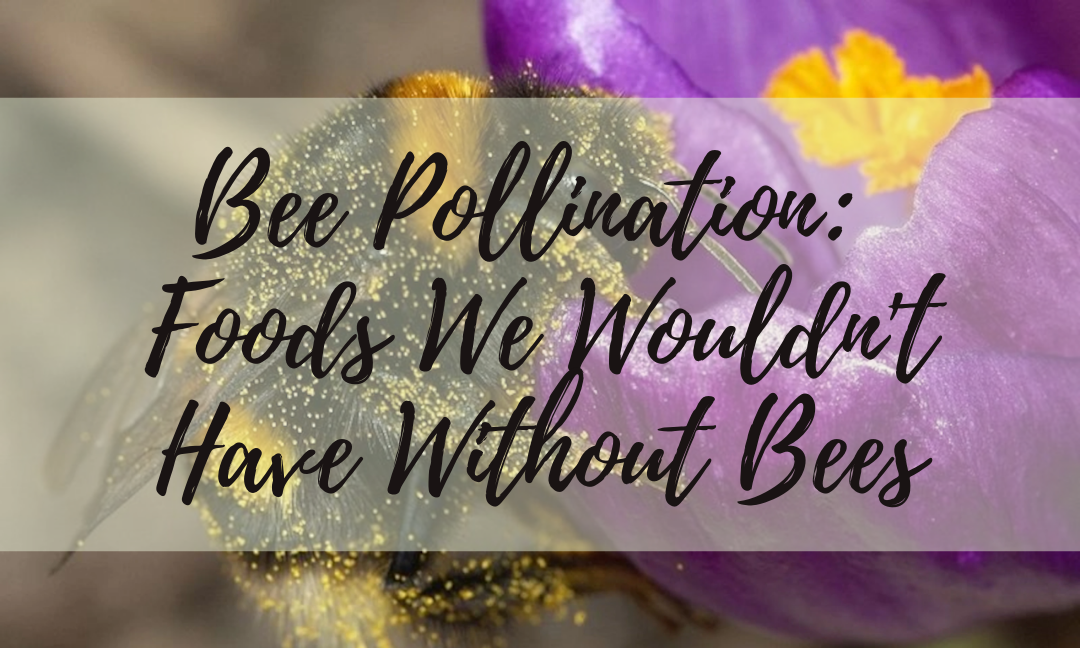Written by: Jumana Ismail
Have you ever considered what foods we would not have if it weren’t for our brilliant pollinators, bees? Bees are a special type of insect that could produce their own food, as well as pollinate many other foods. Pollination is the process of plants reproducing, which relies on bees and other insects. They transfer pollen from a male’s flower parts to the female’s flower parts of the same species. This process leads to the fertilization of plant ovaries, and the production of a seed can develop.
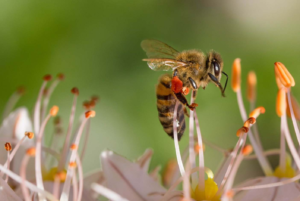
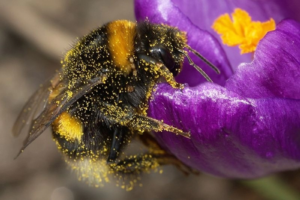
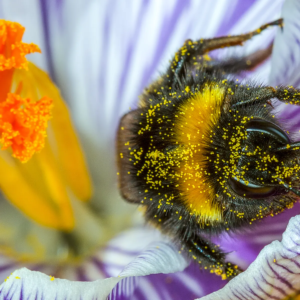
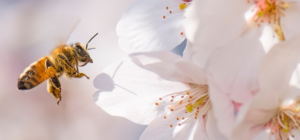 As plants rely on bees and other insects to reproduce, overtime they have to adjust to become more attractive to them.Insects are drawn to plants with flat or open tubular flowers with lots of pollen and nectar. Additionally, the flowers’ bright colour and scent appeals to bees!
As plants rely on bees and other insects to reproduce, overtime they have to adjust to become more attractive to them.Insects are drawn to plants with flat or open tubular flowers with lots of pollen and nectar. Additionally, the flowers’ bright colour and scent appeals to bees!
Bees are pollinating one or more of the world’s crops with over 66%, as well as contributing to one third of the food we eat. Overall, bees provide us with fruits, nuts, vegetables, and have an important role for the food production of animal products.
1. Animal Products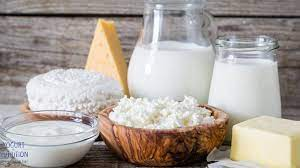
For animals to grow and be properly fed, a lot of their food is highly reliant on bees pollination. Thus, without bees, dairy, meat, and eggs would be harder to produce.
2. Fruits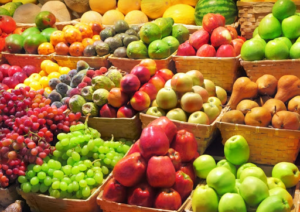
Lots of fruits are pollinated by Honey bees, Osmia bees, and Bumble bees. This includes:
Berries: Strawberries, Blackberries, Blueberries, Cranberries, and Raspberries
Citrus Fruits: Oranges, Tangerines,and Limes
Orchard fruits: Apples, Plums,and Pear Quince
3. Vegetables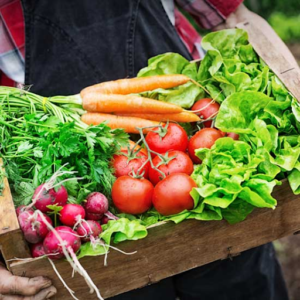
Vegetables don’t require pollination to develop the part of the plants we harvest, however in order to grow them we need viable seed to sow and bees are an important figure for it. Honey bees, Bumble bees, Anthophora bees, Osmia bees, and Solitary bees pollinate many vegetables which include;
- Beets
- Cabbages
- Mustratd
- Kale
- Cauliflower
- Carrots
- Broccoli
4. Nuts 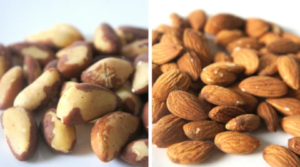
Although nuts are self-pollinated, bees are known for helping pollinate both Almonds and Brazilian Nuts.
In summary, bees are unique pollinators that benefit our food system by pollinating flowers so they can produce fruit seeds. That allows us, humans, to have access to many fruits, vegetables, nuts, as well as to feed animals that are able to produce goods for our needs.
Sources:
https://www.canr.msu.edu/nativeplants/pollination/
https://bees.techno-science.ca/english/bees/pollination/food-depends-on-bees.php
https://www.apicultural.co.uk/the-foods-that-bees-pollinate
https://www.hobbyfarms.com/8-nuts-to-grow-on-your-farm/
Picture Sources:
https://cdn.shopify.com/s/files/1/1046/1266/files/Teadora_Newsletter_Banners_large.png?v=1524782601
https://buyhealthybasket.com/wp-content/uploads/2021/06/Companion-Planting-SQ-jpg-1.jpg
https://www.yogurtinnutrition.com/wp-content/uploads/2019/09/yinimodel_post_ukdairydiet-1280×720.png
https://www.jcehrlich.com/blog/wp-content/uploads/2018/06/Wasp-repelling-plants.jpg
https://i.natgeofe.com/n/9b9f17c3-008d-4cd1-a6c3-ffa3cf6e5dc0/Bumblebee.jpg

